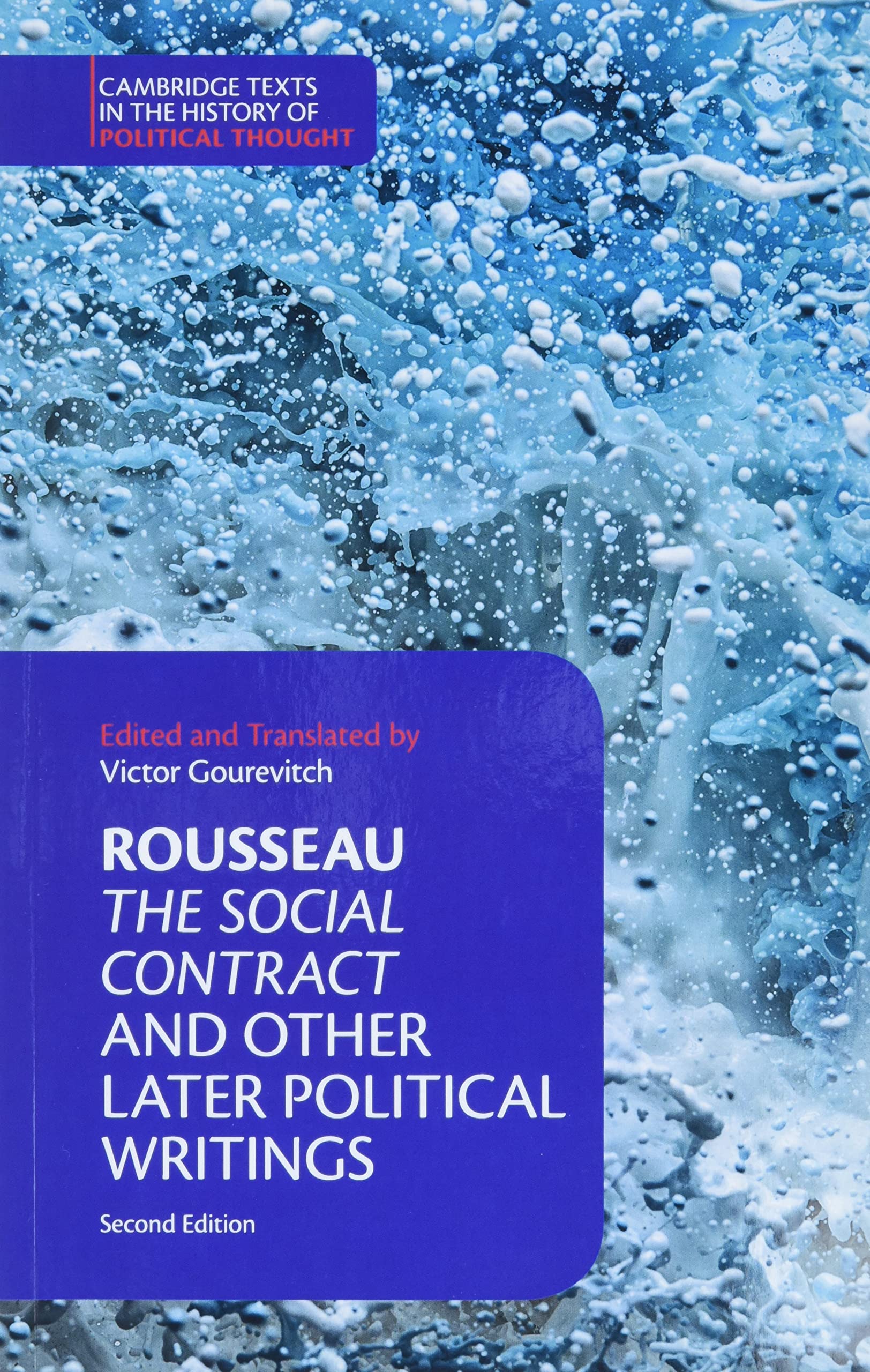Customer Services
Copyright © 2025 Desertcart Holdings Limited


Rousseau: The Social Contract and Other Later Political Writings (Cambridge Texts in the History of Political Thought) [Rousseau, Jean-Jacques, Gourevitch, Victor] on desertcart.com. *FREE* shipping on qualifying offers. Rousseau: The Social Contract and Other Later Political Writings (Cambridge Texts in the History of Political Thought) Review: Fantastic translation of Rousseau! - This is the best translation of Rousseau that I have ever read. The translation for this series genuinely reflects Rousseau's humor and sarcasm, making the political philosophy a joy to read. Highly recommend this series! Review: Great edition. Anyone who wants to educate themselves about ... - It's Rousseau. Great edition. Anyone who wants to educate themselves about the liberties and freedoms that are enjoyed by those living under a Constitution needs to read this book.
| Best Sellers Rank | #96,174 in Books ( See Top 100 in Books ) #117 in Philosophy (Books) #283 in Political Philosophy (Books) #343 in History & Theory of Politics |
| Customer Reviews | 4.9 4.9 out of 5 stars (49) |
| Dimensions | 5.4 x 0.8 x 8.4 inches |
| Edition | 2nd |
| ISBN-10 | 1316605442 |
| ISBN-13 | 978-1316605448 |
| Item Weight | 1.25 pounds |
| Language | English |
| Print length | 412 pages |
| Publication date | December 20, 2018 |
| Publisher | Cambridge University Press |
R**N
Fantastic translation of Rousseau!
This is the best translation of Rousseau that I have ever read. The translation for this series genuinely reflects Rousseau's humor and sarcasm, making the political philosophy a joy to read. Highly recommend this series!
R**M
Great edition. Anyone who wants to educate themselves about ...
It's Rousseau. Great edition. Anyone who wants to educate themselves about the liberties and freedoms that are enjoyed by those living under a Constitution needs to read this book.
M**E
Five Stars
A classic masterpiece for those lacking a little panache in their developing philosophy.
P**A
Five Stars
good classic writings of a very important person in our history.
A**.
Best version in English
Ignore the review above by Mease. This is the standard edition for serious students of Rousseau, and includes a wealth of valuable information and analyses on the text.
F**Y
The Pot-Stirrer
As an American, we have entered into a political state of turmoil that many find new and either exciting or debilitating. I am of the latter, to be blunt. However, I can't sit here and attest that this state of perpetual upset is new. For time out of mind, government (if the word existed at the time) has had its issues and falsities. Rousseau, writing his collaborative works during the mid-1700s, attests to this. His main concerns, as a philosopher, was to engage and spar with governmental regimes and oust what he would consider "chimeras" and lackluster ways of managing a people and a State. Even today, this text has relevance. To be sure, much of it does not as the world has moved on and changed. His views on women, religion, and the idea of a Sovereign or King are slightly outdated. However, for having been written nearly 300 years ago, I have to admit, a lot can be learned from his thoughts. He argues, quite adamantly, that we have to do away with this thought that freedom is automatic happiness and quantity. In fact, he would most likely be appalled by the amount of waste and commodities that exist today. He states that freedom is a word that should be universal and, quite unlikely, the same across the board. For example, a person should only own a set amount and after that amount is exceeded it would be highly taxed. And this would apply universally. This is the true idea of equality and freedom as there is no excess, but there is also no want for more. Philosophy at its finest, considering that our own inner desires and wants usually win out if they can be attained. Something more manageable, however, was his beliefs on small governments being run by the people and that once a government became to large it would forget its compatriots and the little people that help to make it so. This happens quite often in today's world where the government seems to no longer be run by the people because the government is too large and in control of too many. He also makes a solid point that one small gathering of people, perhaps only in the thousands, do not need the same rules and regulations as another set of people many miles away. The land, the climate, what the soil produces, the beliefs, the nuances of those people are so very different they cannot possibly be governed by the same set of governors. These are but a few examples in his multitudes of writing here encased in this text. It's worth the read, but with an open eye that he lived three centuries ago and had a very different outlook on the world. Despite this, the text has its merits, and it is no surprise his works helped to foster revolutions around the world and he was ousted from his own homeland as a heretic. Nobody likes a pot-stirrer and he had quite the ladle.
J**S
This Rousseau geezer will go far.
Trustpilot
1 month ago
2 months ago